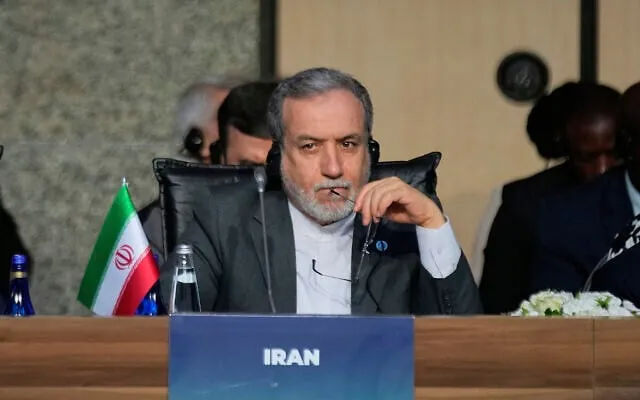In a rapidly shifting Middle East crisis, Iran has publicly stated it will cease hostilities against Israel if Israel halts its military actions. This announcement came just hours after former U.S. President Donald Trump claimed that a ceasefire deal between Iran and Israel had been reached. While unconfirmed by Israeli leadership, the statement from Tehran signals a potential pause in one of the most dangerous escalations in the region in years.
What Trump Said About the Ceasefire
In a Truth Social post early this morning, Donald Trump claimed that both Israel and Iran had agreed to “a full ceasefire” following secret diplomatic backchannels. The former president did not provide evidence or identify intermediaries but stated, “Peace in the Middle East is achievable again.”
Trump’s announcement caught global media by surprise, especially as it came amid active conflict involving Iranian missile launches, Israeli air defenses, and civilian evacuation orders in Tel Aviv.
Reuters live coverage continues to track the latest updates.
Iran’s Conditional Ceasefire Statement
Shortly after Trump’s post, Iran’s Foreign Ministry confirmed that it is prepared to halt all offensive actions if Israel ceases its military operations immediately. The statement, issued in Tehran’s morning briefing, accused Israel of “aggression that forced us to respond defensively.”
“We are not seeking escalation, but we will not stand idle if our sovereignty or allies are attacked,” said spokesperson Nasser Kanaani.
This aligns with the Iranian claim that its missile strikes were retaliatory, referencing Israeli activity near Iranian consulates and allied territories.
A 12-Day War and Rising Tensions
What is now being labeled informally as the “12-Day War” has seen dozens of missile launches, cyberattacks, and cross-border airstrikes involving Iran, Israel, and militias in Iraq and Syria. The risk of wider conflict dragged in concern from global powers, including Russia, the U.S., and China.
The violence also raised fears of attacks on U.S. interests in the region, particularly at the Al Udeid Air Base in Qatar, a strategic hub for American air operations in the Gulf.
For background: U.S. Forces and Al Udeid Base Overview
Qatar’s Quiet Role and Regional Diplomacy
Unconfirmed reports from Axios and Al Jazeera suggest that Qatar and the UAE may be mediating talks behind the scenes, possibly explaining Trump’s confidence in a ceasefire declaration.
Qatar, which maintains open channels with both Tehran and Washington, has often played an unofficial mediator role in previous Middle East conflicts. Its proximity to the Al Udeid base also raises its strategic relevance.
Market Reaction: WTI Oil Price Volatility
The prospect of a ceasefire sent WTI oil futures on a rollercoaster ride. After spiking to over $91 per barrel yesterday, prices dropped nearly 3% this morning after Trump’s statement. Traders remain cautious, however, noting that the ceasefire is conditional and fragile.
Energy analyst Lila Khan told Bloomberg:
“If Iran and Israel really pause the strikes, we’ll see relief in the oil markets. But one false move and futures will surge again.”
Follow updates on Bloomberg Energy.
U.S. Involvement: Watching, Not Leading?
While the Biden administration has not officially commented on Trump’s statement or Iran’s offer, U.S. defense officials have elevated threat levels at bases across the Gulf, including Qatar and the UAE.
Pentagon sources told CNBC that airspace monitoring has intensified, and diplomatic outreach is ongoing through backchannels in Europe and the United Nations.
What Comes Next?
Although Iran’s ceasefire offer has not been reciprocated by Israel publicly, the world is watching for a formal reply from Tel Aviv. If Israel halts air operations, Iran is expected to do the same, according to sources close to both governments.
Still, mistrust and a lack of enforcement mechanisms mean this ceasefire could unravel within hours. International observers stress the need for third-party monitors or U.N. supervision to ensure compliance.
FAQ
Q: Has Israel confirmed a ceasefire?
A: As of now, no formal confirmation has been issued by the Israeli government.
Q: Is Iran’s ceasefire official?
A: Iran’s Foreign Ministry has conditionally agreed to stop attacks if Israel does the same.
Q: Is the U.S. involved?
A: Not directly in negotiations, but U.S. bases remain on high alert, and Washington is monitoring closely.
Q: How are oil prices reacting?
A: WTI dropped slightly on ceasefire hopes but remains volatile.
Your Opinion
Do you believe this conditional ceasefire can hold, or is it just a pause in a longer conflict?
Share your insights and join the discussion below.


